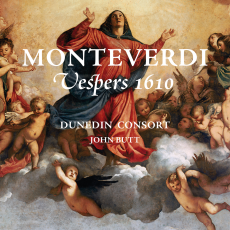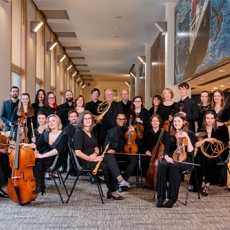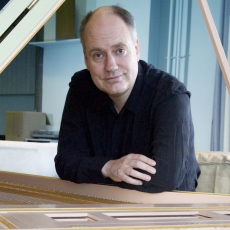Dunedin Consort - Monteverdi: Vespers 1610 - Early Music Review
This is a first-rate recording, and I should say at the start that the questions I raise have nothing to do with the quality of the performers or their fine musicianship. This recording joins the groundbreaking one of Andrew Parrott and the Taverner Consort in 1983, the burstingly, zingy one of Christine Pluhar and L’Arpeggiata from 2010 and the utterly different recent version by La Compagnia del Madrigale under Giuseppe Maletto released this year by Glossa as those in the superlative bracket.
The first thing you need to come to grips with in preparing a performance of the Monteverdi Vespers is to decide what sort of a work it is; and despite there being no evidence of any performance of the complete ‘Vespers’ in Monteverdi’s lifetime, the series of movements that make up what we are nowadays used to hearing, with its extraordinary variety of treatment of the Gregorian psalm chants interspersed with the concerti for a growing number of voices, makes compelling hearing in its own right. I first heard the Vespers live in a performance in Westminster Abbey in October 1959, given by Walter Goehr with a large choir and modern ‘orchestra’ of substantial proportions, and was bowled over. But I have gradually – partly as a result of Parrott’s 1983 recording – changed my own performance practice towards single voices and now find myself in almost complete agreement with what John Butt writes in his perceptive and illuminating notes – especially about using a full complement of ten singers in different combinations, rather than tying each one to a particular part-book.
Interestingly, and unlike his liturgical reconstructions of the Bach Johannespassion or the Christmas Vespers, Butt eschews others’ attempts to make the movements in Monteverdi’s publication fit some kind of historically reconstructed liturgical frame, and is content to explore the musical inventiveness of the publication as it stands, but without either the In illo tempore Mass or the six-part Magnificat. His concern for the sonorities means that he never doubles the voices unless Monteverdi’s parts specifically call for it, so, for example, he relies entirely on the colours of each voice to articulate the contrasts between odd and even numbered verses in Dixit Dominus and Laetatus sum. As a related issue, I am not sure on what principles he has decided to deploy his bassus generalis players. I sometimes detect a discreet 16’ when I wouldn’t expect it, but there is no doubt that the principale chorus of the Hauptwerk-generated Italian/Dalmatian organ (and there’s a useful reference to their website in the notes) helps keep the singers’ sound open and clean. When they play, the sounds of the Dunedin’s strings and His Majestys Sagbuts and Cornetts are exceptionally well-blended and beautifully captured in this intelligent and well-produced recording.
So with an instrumental sound formed in the manner of Giovanni Gabrieli’s basic church band in Venice, what kind of sound is John Butt asking for from his singers? In spite of owing a lot in its simplicity of scoring to Parrott’s 1983 recording, Butt’s performance is hugely focussed on the individuality of his singers. They are recorded pretty close up, so we are never allowed to forget that these singers are soloists; however well they are balanced and sing together, the sense of friendly competition frequently seems to trump absolute clarity, as in Lauda Jerusalem, so rich and exciting at (properly) down a fourth but at A=466. This style of singing may be justified by the ecstatic, volatile and highly charged nature of much of the music – it is Italian, after all – but these are singers at the top of their game who can do anything. For example, I was disappointed that the two sopranos didn’t hold their notes entirely still in the opening bars of their Et Misericordia: they ‘improved’ vastly later on and were almost perfect in the sustained Gloria as a foil to Nicholas Mulroy’s (properly here) dramatic roulades. Per contra, Amy Lyddon and Rory McCleery seemed to judge it exactly right in Esurientes, and the sustained lines of chant all through the Magnificat are splendidly controlled.
Could more have been done to give the concerti a greater sense of intimacy in contrast to the Psalm settings? I listened hard to see if the singers were consciously changing their style to match the difference in these pieces and I thought that Nicholas Mulroy did that splendidly in Nigra sum; the tenors Matthew Long and Joshua Ellicot gave us a wonderfully nuanced and controlled start to Duo Seraphim, and all three sustained Et hi tres unum sunt without a breath. The chamber style was certainly helped by the absence in these movements (till Audi cœlum) of the Italian organ and the discrete sustaining of a string bass along with the pluckers in Duo Seraphim.
Some small points: I like the relaxed tripla Butt goes for – it makes sense of the proportions and time changes in the Sonata in particular, but in the Gloria of Laudate pueri, each choir in the tripla section fails to sing bars 3 and 4 of the six bar phrase as a hemiola, producing an unmusical accent on ‘et’. The decision to follow some existing organs of the period and voice tessiturae and play at A=466 is confirmed by the more relaxed sonorities in Lauda and the Magnificat, the movements where almost everyone now accepts the scholarly arguments for downward transposition. And ornaments. We know that cornetto players as well as violinists can turn every passage into a display of personal virtuosity, but is it right to do it so constantly? It seemed to affect the singers too in the verses of the hymn as well as in every ritornello. In big acoustics, I find it confusing as well as distracting.
What I like most about this performance is that John Butt thinks long and hard about the music and how it works as a whole, chooses his singers and players with care, but then trusts them to deliver the music and so doesn’t feel the need to micro-manage them. This is what delivers committed and gracious music-making of the kind that is captured here.


